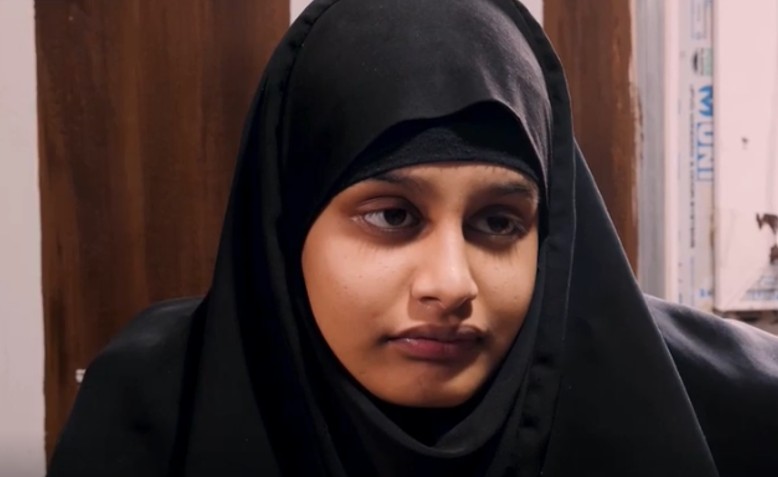 Shamima Begum interview, Sky News
Shamima Begum interview, Sky News
Keeping Shamima Begum stateless and blocking her from re-entering the UK is setting a dangerous precedent, argues Lucy Nichols.
Two years after the Home Office first moved to revoke Shamima Begum’s British citizenship, the Supreme Court has barred the 21-year-old from returning to the UK to fight her citizenship case. This is a deeply worrying decision that will likely have ramifications for many second-generation migrants in Britain.
Begum is now stateless, neither a citizen of Great Britain nor Bangladesh – where her parents come from. Her British citizenship was first revoked on the basis that she may have been able to apply for citizenship in her parent’s country of origin. As Shabbir Lakha pointed out in 2019, ‘it would be setting a dangerous precedent for the Home Office to revoke citizenship and make someone stateless on the premise that they might get citizenship elsewhere, and without trial’.
This remains the case two years on. The British state’s decision to cast out Shamima Begum sets the precedent for the same thing to happen to other people, creating a bizarre two-tiered citizenship system where a child of immigrants can have their citizenship revoked without even standing trial. It suggests that a child of parents born abroad is somehow not on equal footing to a child of UK-born parents, and is therefore subject to higher level of scrutiny by the state.
The treatment of Shamima Begum by the British establishment over the last few years has been unjust, and often cruel. Without defending or justifying the many horrors committed by ISIS, it is important to remember that Begum was just 15 when she left East London for Turkey with two other schoolgirls.
Begum and her two classmates were born, raised and radicalised on British soil. The three children ultimately travelled to the Middle East after what must have been a serious grooming effort by a powerful terrorist organisation.
They are likely to have been victims of more manipulation and perhaps crimes once in Syria, as they no doubt continued to be groomed throughout their time living under Daesh. Begum has seen all three of her children die – all of them British, and the youngest’s death completely avoidable (had the Home Office not blocked his repatriation).
The judge’s argument for refusing a fair trial for Shamima was that the right to justice does not automatically override questions of safety and security. This is another extremely alarming precedent that opens the door to all sorts of abuse in the future.
It is also in this case based on a fallacy. If she had been returned, Shamima would have been in custody and would have voluntarily faced the due process of the law. Many security experts have argued she would have posed little if any danger. Abandoning her and other young women in a similar position in desperate circumstances in a camp in northern Syria will do nothing to halt the spread of radicalisation.
The case of Shamima Begum has to be seen in the context of a series of disastrous and devastating foreign wars in which Britain has participated in the Middle East, a series of attacks on civil liberties at home and a failed counterterrorism programme, Prevent, which is widely regarded as discriminating against Muslims.
It is far from a victory for the people of the UK that a 21-year-old ‘ISIS bride’ will not be allowed to return to Britain to face due process. It is one more episode in the story of violence and illegality that began with Bush and Blair’s wars twenty years ago and has made the world a much more dangerous and frightening place.
Fund the fightback
We urgently need stronger socialist organisation to push for the widest possible resistance and put the case for change. Please donate generously to this year’s Counterfire appeal and help us meet our £25,000 target as fast as possible.

